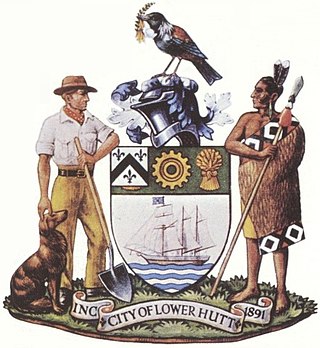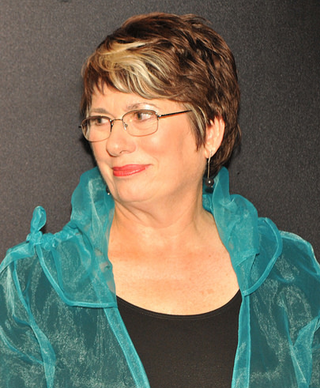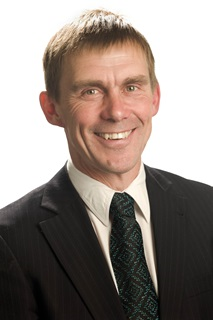
Wellington City Council is a territorial authority in New Zealand, governing the city of Wellington, the country's capital city and third-largest city by population, behind Auckland and Christchurch. It consists of the central historic town and certain additional areas within the Wellington metropolitan area, extending as far north as Linden and covering rural areas such as Mākara and Ohariu. The city adjoins Porirua in the north and Hutt City in the north-east. It is one of nine territorial authorities in the Wellington Region.

Triennial elections for all 74 cities, districts, twelve regional councils and all district health boards in New Zealand were held on 9 October 2004. Most councils were elected using the first-past-the-post method, but ten were elected using the single transferable vote (STV) method. It was the first time that the STV method was available; the change came through successful lobbying by Rod Donald.

The Christchurch City Council is the local government authority for Christchurch in New Zealand. It is a territorial authority elected to represent the 396,200 people of Christchurch. Since October 2022, the Mayor of Christchurch is Phil Mauger, who succeeded after the retirement of Lianne Dalziel. The council currently consists of 16 councillors elected from sixteen wards, and is presided over by the mayor, who is elected at large. The number of elected members and ward boundaries changed prior during the 2016 election.

The 2010 New Zealand local elections were triennial elections to select local government officials and district health board members. All elections are conducted by postal ballot, with election day being Saturday 9 October 2010.
The 2010 Wellington Region local elections were part of the 2010 New Zealand local elections, to elect members to sub-national councils and boards. These elections covered one regional council, eight territorial authority councils, three district health boards, and various community boards and licensing trusts.

The 2013 Wellington City mayoral election is part of the New Zealand local elections. On 12 October 2013, elections were held for the Mayor of Wellington plus other local government roles. Wade-Brown was re-elected.

The Hutt City Council is a territorial authority in New Zealand, governing the city of Lower Hutt. Lower Hutt is the country's seventh largest city. The city borders Porirua to the north, Upper Hutt to the northeast, South Wairarapa District to the east, and Wellington to the southwest and west. It is one of nine territorial authorities in the Wellington Region.
The 2013 Wellington local elections were part of the 2013 New Zealand local elections, to elect members to sub-national councils and boards. The Wellington elections cover one regional council, eight territorial authority councils, three district health boards, and various community boards and licensing trusts.

The 2016 Wellington region local elections were part of the wider 2016 New Zealand local elections, to elect members to sub-national councils and boards. These elections covered one regional council, eight territorial authorities, three district health boards, and various community boards and licensing trusts.

The 1992 Wellington City mayoral election was part of the held that same year. In 1992, elections were held for the Mayor of Wellington plus other local government roles including 21 councillors. The polling was conducted using the standard first-past-the-post electoral method.

The 1992 Wellington local elections were part of the 1992 New Zealand local elections, to elect members to sub-national councils and boards. The Wellington elections cover one regional council, city council, area health board, and various community boards and licensing trusts. The polling was conducted using the standard first-past-the-post electoral method.
The 2001 Wellington local elections were part of the 2001 New Zealand local elections, to elect members to sub-national councils and boards. The Wellington elections cover one regional council, eight territorial authority councils, three district health boards, and various community boards and licensing trusts.

The 1995 Wellington local elections were part of the 1995 New Zealand local elections, to elect members to sub-national councils and boards. The Wellington elections cover one regional council, eight territorial authority councils, three district health boards, and various community boards and licensing trusts. The polling was conducted using the standard first-past-the-post electoral method.

The 1998 Wellington local elections were part of the 1998 New Zealand local elections, to elect members to sub-national councils and boards. The Wellington elections cover the regional council, city council, area health board, and various community boards and licensing trusts. The polling was conducted using the standard first-past-the-post electoral method.
The 1986 Wellington local elections were part of the 1986 New Zealand local elections, to elect members to sub-national councils and boards. The Wellington elections cover one regional council, city council, hospital board, and various local boards and licensing trusts. The polling was conducted using the standard first-past-the-post electoral method.
The 1989 Wellington local elections were part of the 1989 New Zealand local elections, to elect members to sub-national councils and boards. The Wellington elections covered the regional council, city council, area health board, and various community boards and licensing trusts. The polling was conducted using the standard first-past-the-post electoral method.

The 2019 Wellington City mayoral election was part of the New Zealand local elections and was held on 12 October to determine who would serve as Mayor of Wellington for the next three-year term. It was won by Andy Foster, who unseated the incumbent Justin Lester by 62 votes.
The 2019 Wellington Region local elections were part of the wider 2019 New Zealand local elections, to elect members to sub-national councils and boards. These elections covered one regional council, eight territorial authorities, three district health boards, and various community boards and licensing trusts.
The 2007 Wellington local elections were part of the 2007 New Zealand local elections, to elect members to sub-national councils and boards. The Wellington elections cover one regional council, eight territorial authority councils, three district health boards, and various community boards and licensing trusts.
The 2022 Wellington Region local elections were held on 8 October 2022 as part of the wider 2022 New Zealand local elections to elect members to sub-national councils and boards. These elections covered one regional council, eight territorial authorities, and various community boards and licensing trusts.







